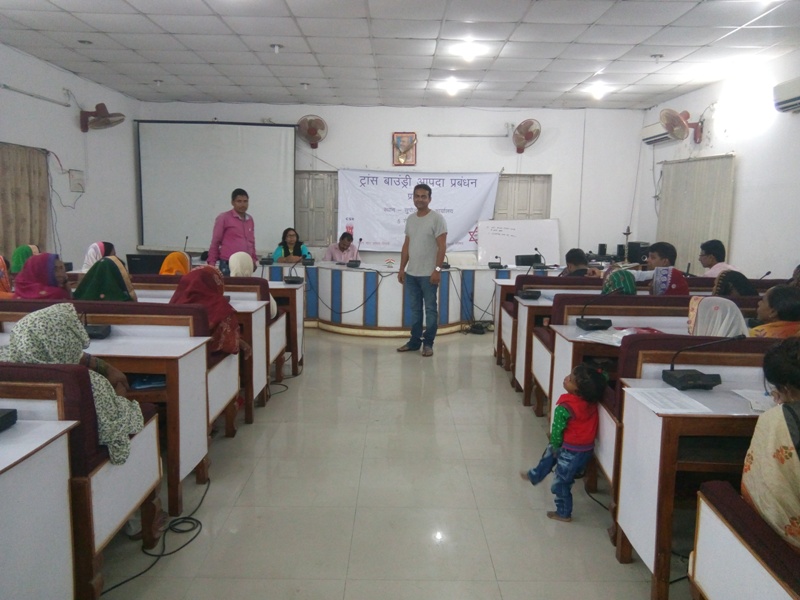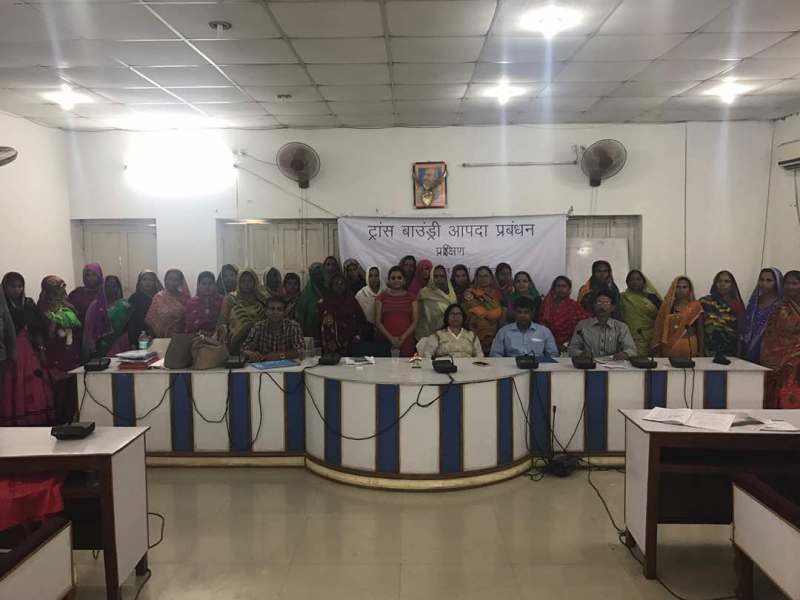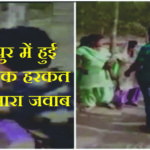The Asia Foundation (TAF) – Trans Boundary Disaster Management Training in collaboration with the Centre for Social Research (CSR) is being conducted in Bihar and Nepal and the training conducted at Supaul, Bihar from the 5th- 7th of May, 2017 was the second such meeting; the first one held in Saharsa with the help of local partner GENVP. These trainings are conducted to improve the lives of communities, especially of vulnerable groups, especially women who are affected by yearly floods by enhancing women’s participation in local governance and decision making process, and reduce disaster risks and potential losses from natural hazards. All of these factors have been kept in mind bearing factors of stringent gender roles and overarching patriarchal values that are existent which make these women who are Elected Women Representatives (EWRs) further incapacitated. The training was attended by EWRs from the five Panchayats of Balwa, Beriya, Telwa, Ghuran and Gopalpur.


The three days’ scheduled training took off with an inaugural session greeted and inaugurated by eminent District Collector, who spoke for the need of women representatives and Sarpanch to be actively involved, so as to exercise their positions rightfully and appropriately as well addressing the issue of floods in the area and the suffering of the local people. In this session, CSR and TAF were introduced giving a brief on their backgrounds and the project taken up by both individually and collectively. This was taken forward by introducing the panel of trainers and coordinators, participants and program.


The first day of training, then proceeded with Ice-breaking Exercise. The other sessions undertaken during the day were on 1) Definition of Disaster Management Concepts and Principles, 2) Understanding difference between Sex and Gender, 3) Gender Roles and Stereotypes, 4) Gender Analysis in Disaster and 5) Gender Quiz and Seasonal Calendar
On Day two, the sessions were on 1) Gender Mainstreaming in Disaster Risk Reduction, 2) Disaster Management process, and 3) Participatory Disaster Risk Assessment by Problem Tree
On the final day of the training, the facilitators took sessions on 1) Functions of Disaster Management Committee, 2) Natural Resource Mapping and 3) Awareness on Government Schemes and Policies on Disaster Management.


Conclusion
Trans-boundary water issues and solutions and encourage gender collaborative spirit among us all. With our field trips record, we have observed that there are number of breakdowns in the communication line between the practitioners and decision makers that further illustrate the lack of information about various water resources related issues in the communities. Although, there are numerous water based organizations and water experts, working hard and working together on these issues of engaging with local people on making women self-reliant and advocate the idea of devolution of power through the 73rd Amendment, there is still enough space left for a better collaboration within such institutions and people, which are still struggling to have a sustainable impact.




